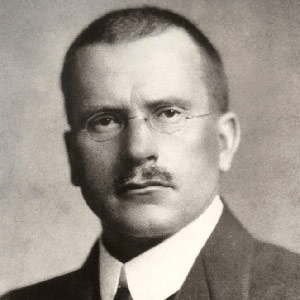
Carl Gustav Jung (1875 – 1961) was a Swiss psychiatrist and psychoanalyst who founded analytical psychology. Initially Jung had aspirations of becoming a preacher or minister, but after studying philosophy in his teens he decided instead to pursue psychiatry and medicine. Jung’s work was influential in the fields of psychiatry, anthropology, archaeology, literature, philosophy, and religious studies. He created some of the best known psychological concepts and archetypal phenomena. Jung was also an artist, craftsman and builder, as well as a prolific writer. Many of his works were not published until after his death and some are still awaiting publication.

Quotes by Carl Jung…
Christ would never have made the impression He did on His followers if He had not expressed something that was alive and active in their unconscious. Christianity would never have spread through the pagan world with such astonishing rapidity had its ideas not found an analogous psychic readiness to receive them. It is this fact which also makes it possible to say that whoever believes in Christ is not only contained in Him, but that Christ then dwells in the believer as the perfect man formed in the image of God.
The telling question of a person’s life is whether or not he is related to the Infinite.
As far as we can discern, the sole purpose of human existence is to kindle a light in the darkness of mere being. It may even be assumed that just as the unconscious affects us, so the increase in our consciousness affects the unconscious.
Shrinking away from death is something unhealthy and abnormal which robs the second half of life of its purpose.
Who looks outside, dreams… who looks inside, awakes.
Everything that irritates us about others can lead us to an understanding of ourselves.
Your vision will become clear only when you can look into your own heart.
There is no coming to consciousness without pain. People will do anything, no matter how absurd, in order to avoid facing their own soul. One does not become enlightened by imagining figures of light, but by making the darkness conscious.
